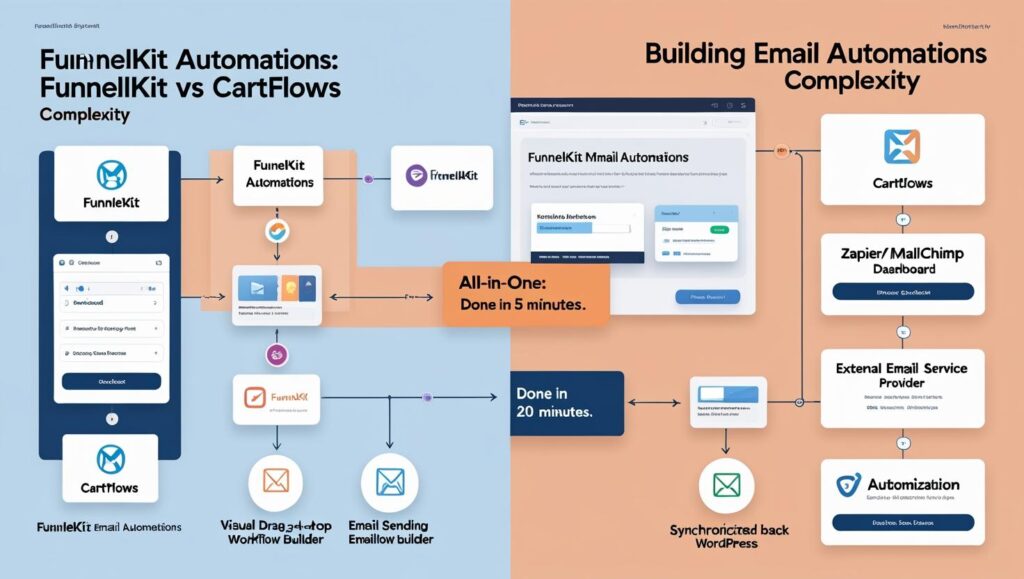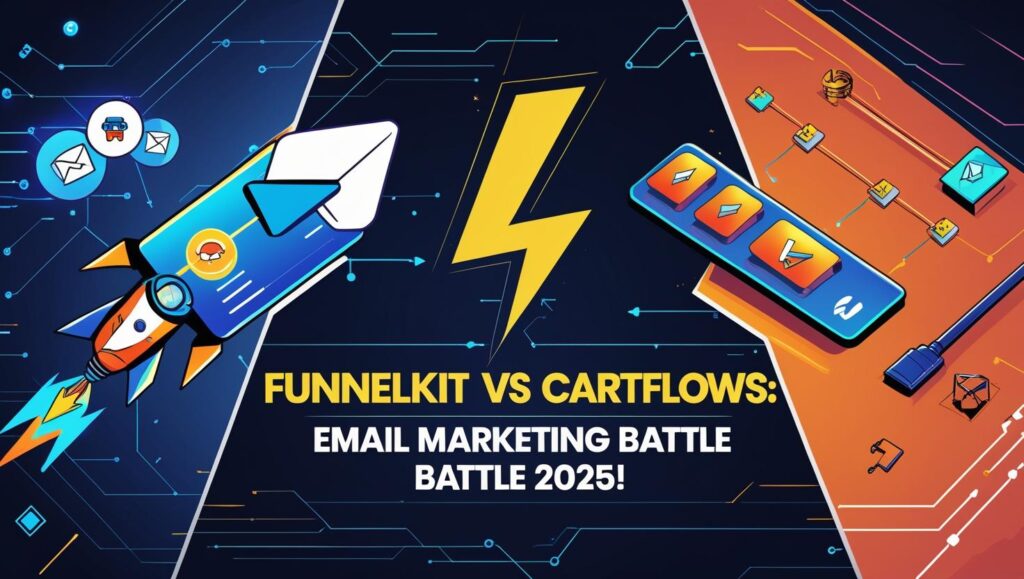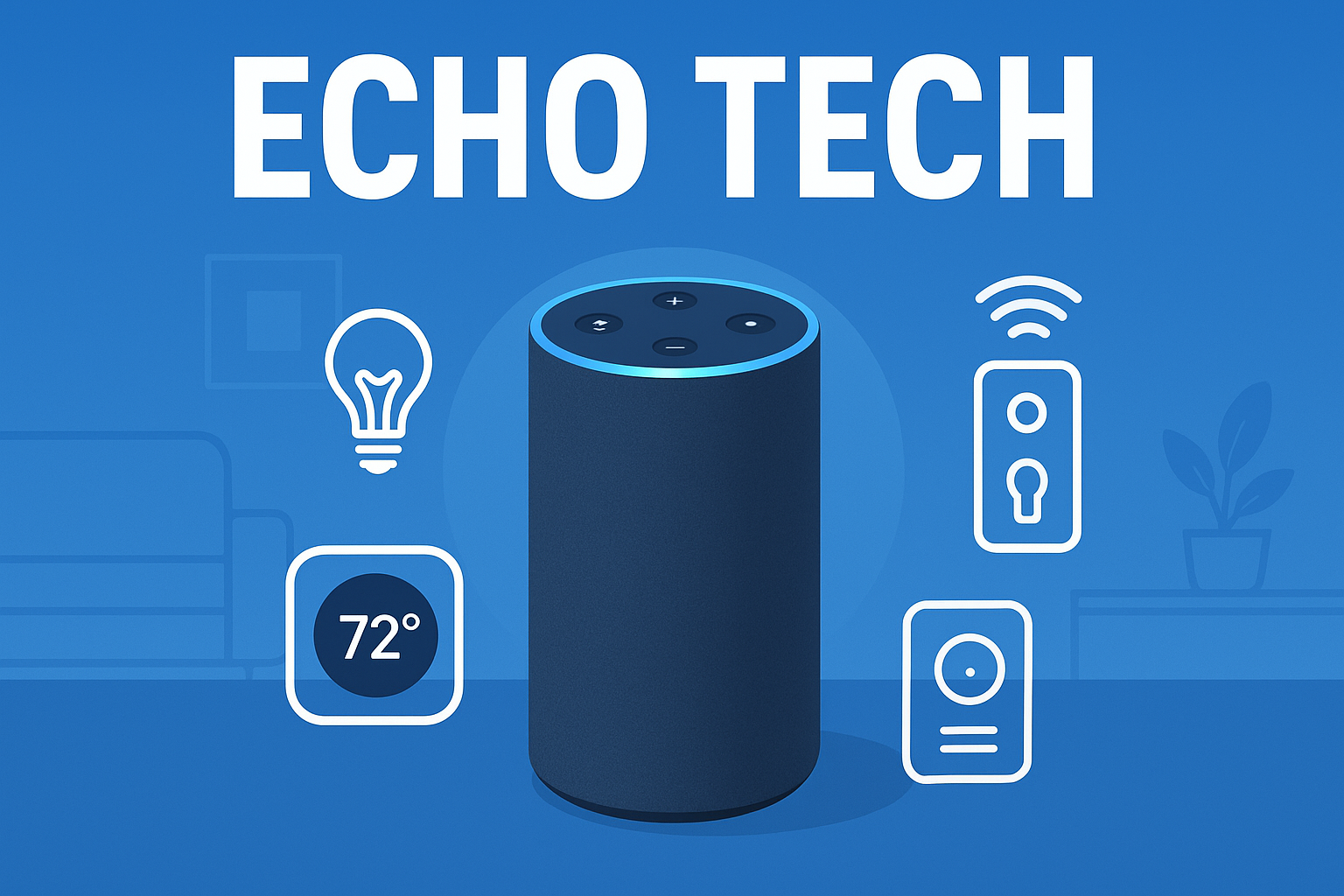Introduction
Email marketing is the lifeblood of any funnel. You can build the most beautiful landing page on the planet, but if you’re not capturing leads and sending timely, relevant emails, you’re leaving money on the table. That’s where FunnelKit vs CartFlows email marketing come in — two giants in the WordPress funnel builder arena.
But when it comes to email marketing, these tools are not built the same. So if you’re stuck choosing between the two, you’re in the right place.
Let’s dive deep and find out who really takes the crown for email marketing supremacy in 2025.
Core Purpose and Focus
Funnel Building Capabilities
Both tools help you create sales funnels, but their approach is very different.
- FunnelKit focuses heavily on smart automations, deep CRM integrations, and high-converting funnel templates.
- CartFlows shines as a WooCommerce-first solution, ideal for quick checkout optimization and upsell flows.
Email Marketing Integration
- FunnelKit has built-in email marketing tools (thanks to FunnelKit Automations).
- CartFlows relies on third-party email tools like Mailchimp or ActiveCampaign for email automation.
Key Differences in Strategy
FunnelKit is trying to be your all-in-one funnel and marketing automation hub. CartFlows is more of a checkout and upsell funnel tool that assumes you’ll use something else for email.
FunnelKit Overview
Features Focused on Email Marketing
FunnelKit isn’t just about funnels — it’s about nurturing your leads through email. Think welcome series, cart abandonment, follow-ups, win-back campaigns, and more.
FunnelKit Automations (formerly Autonami)
This is the secret sauce. FunnelKit Automations turns your WooCommerce store into a marketing machine. It’s a visual builder for creating automated workflows — and it’s built right into your WordPress dashboard.
CRM Compatibility
Out of the box, FunnelKit integrates with:
- ActiveCampaign
- Mailchimp
- ConvertKit
- HubSpot
- Groundhogg
- And more
Use Cases and Target Audience
- E-commerce store owners
- Coaches and course creators
- Agencies running client funnels
- Anyone needing smart automation within WordPress
CartFlows Overview
Built for WooCommerce Funnels
CartFlows is a powerful funnel builder for WooCommerce. It’s excellent for:
- One-click upsells
- Order bumps
- Optimized checkout pages
How CartFlows Handles Email
Here’s the kicker — CartFlows does not have built-in email marketing. You’ll need to pair it with tools like:
- Mailchimp
- MailPoet
- Sendinblue
- ActiveCampaign
Integration with External Email Tools
You can connect these via webhooks or automation plugins, but it’s not seamless. Expect to juggle a few dashboards.
FunnelKit Email Marketing Deep Dive
Pre-built Email Automations
You get ready-to-use templates for:
- Abandoned cart recovery
- Post-purchase follow-ups
- Review requests
- Product recommendations
Behavioral Triggers
FunnelKit can send emails based on:
- Product views
- Cart abandonment
- Checkout completion
- Tag changes in CRM
A/B Testing and Personalization
You can split test your emails right inside FunnelKit. Add dynamic user data and segment your audience for ultra-relevant campaigns.
Visual Automation Builder
Drag, drop, and automate. No coding. No clunky setup. Everything lives in your WordPress dashboard.
CartFlows Email Marketing Deep Dive
Limited Native Email Features
CartFlows doesn’t offer native email functionality. It leans on WooCommerce or external tools.
Reliance on Plugins
To do serious email marketing, you’ll need:
- WooCommerce Follow-Ups (which is limited)
- Mailchimp/ActiveCampaign plugins
- Zapier integrations
Basic Abandonment Emails
If you want basic cart recovery, you’ll need to install another plugin. It’s not a plug-and-play experience.

Ease of Use
FunnelKit UI/UX
Simple, intuitive interface. The automation builder is sleek and visual — great for non-techies.
CartFlows UI/UX
Straightforward for building sales funnels, but if you want to add email automations, it becomes a juggling act.
Integration and Compatibility
CRM & ESP Compatibility
- FunnelKit wins big here with native CRM and email service provider integration.
- CartFlows depends heavily on Zapier or extra plugins.
WooCommerce and Page Builders
Both work well with:
- WooCommerce
- Elementor
- Divi
- Gutenberg
FunnelKit offers more pre-built templates though.
Pricing Breakdown
FunnelKit Pricing Plans
- Starts at $99/year for the basic funnel builder
- Pro plan with Automations: $249/year
- Lifetime deals available occasionally
CartFlows Pricing Plans
- Starts at $79/year
- Pro plan at $239/year
- No built-in automation, so factor in external tool costs
Performance and Speed
Deliverability
FunnelKit uses your preferred SMTP or CRM for sending. You control your deliverability.
Funnel Load Times
Both tools are lightweight and optimized for WordPress, but FunnelKit offers cleaner code with fewer external dependencies.
Pros and Cons
FunnelKit Pros
- All-in-one marketing system
- Built-in email automation
- Visual workflow builder
- Strong CRM integrations
FunnelKit Cons
- Slightly steeper learning curve
- Costs more if you only need funnels
CartFlows Pros
- Great for checkout optimization
- Affordable starter plan
- Simple UI
CartFlows Cons
- No built-in email marketing
- Relies on third-party tools
- Less powerful for automation
Real-World Use Cases
Coaches and Consultants
FunnelKit is ideal for nurturing leads with email series, follow-ups, and more.
E-commerce Stores
Both tools work, but FunnelKit gives you an edge with email marketing built-in.
SaaS and Membership Sites
FunnelKit again wins with its segmentation, behavior tracking, and CRM sync.
Final Verdict: Which One Should You Choose?
If email marketing is part of your strategy (and let’s be honest, it should be), FunnelKit is the clear winner.
CartFlows is good if you’re only focused on improving WooCommerce checkouts, but it simply can’t match FunnelKit’s deep email capabilities FunnelKit vs CartFlows email marketing.
So, if you’re building a long-term funnel that converts and nurtures — go with FunnelKit.
Conclusion
Both FunnelKit and CartFlows are solid tools — but they serve different masters. FunnelKit is like a full marketing suite in your WordPress dashboard. CartFlows is more like a checkout optimization tool with limited email features.
In 2025, automation and personalization are no longer optional. If you’re serious about turning clicks into customers (and then keeping them coming back), FunnelKit is the better choice FunnelKit vs CartFlows email marketing.
FAQs
1. Which tool is better for WooCommerce email marketing?
FunnelKit wins here hands down — it has built-in email automation, behavioral triggers, and deep WooCommerce integration.
2. Does CartFlows offer email automation like FunnelKit?
No, CartFlows does not have native email automation. You’ll need to integrate third-party services.
3. Can I use FunnelKit without WooCommerce?
Yes, FunnelKit works with WooCommerce, but it also functions as a standalone funnel and automation tool.
4. What makes FunnelKit Automations special?
It offers a visual builder, pre-built workflows, and powerful conditions based on user behavior — all inside WordPress.
5. Is it worth switching from CartFlows to FunnelKit?
If you’re serious about email marketing and automation, absolutely. FunnelKit offers much more value in that area.



